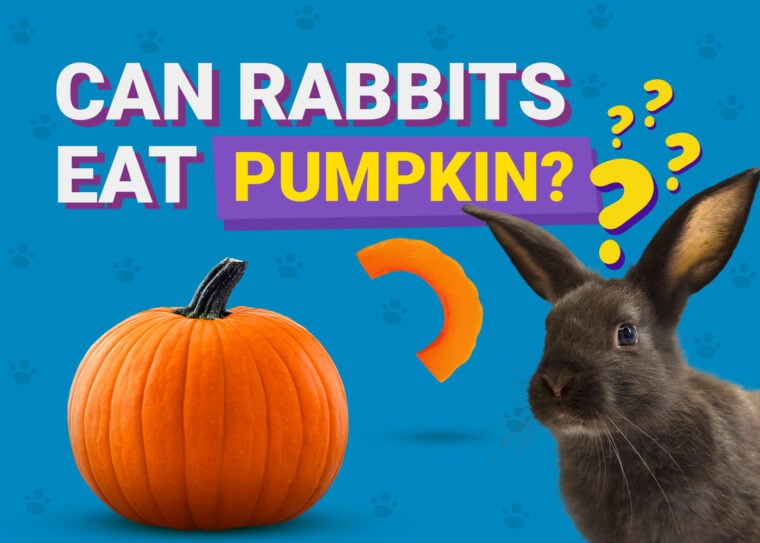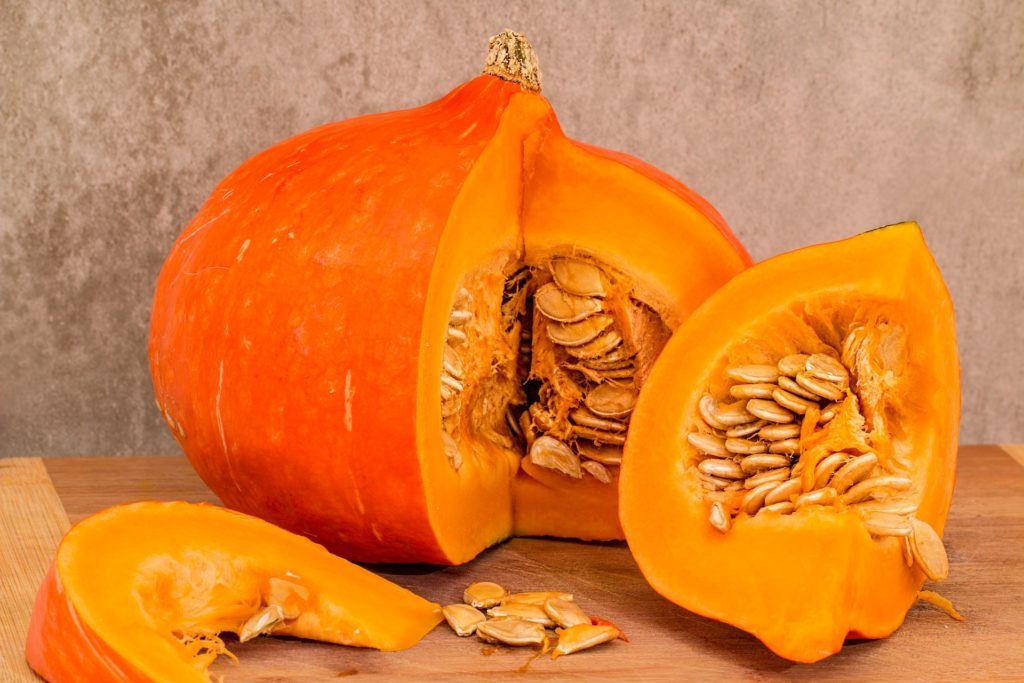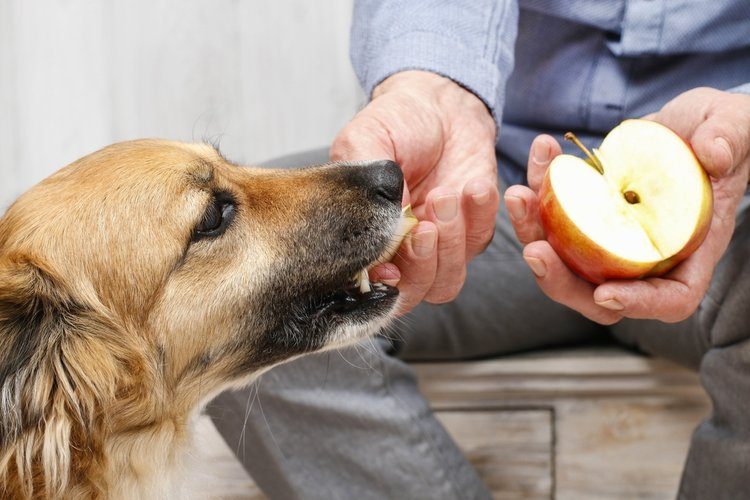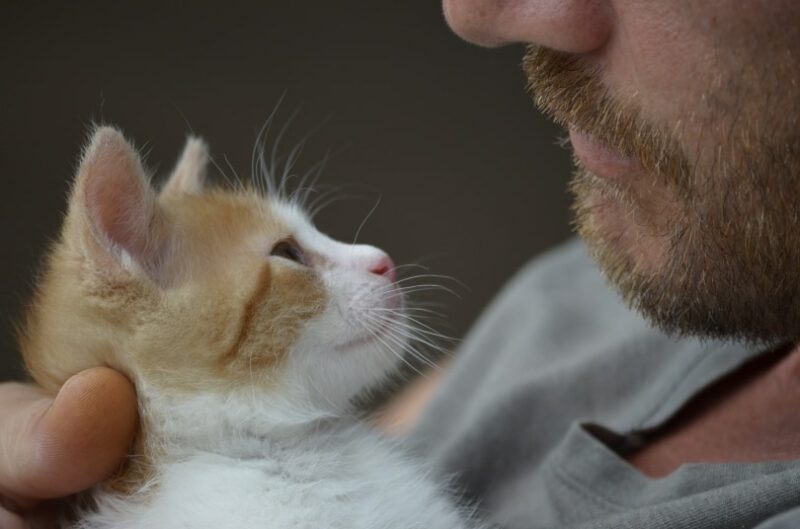
Pumpkins might be widely believed to be rabbits’ second-favorite orange snack, right after carrots! However, in the wild, a rabbit’s diet is mainly based on grass, clover, seedlings, roots, flowers, and rarely on fruits and vegetables. These winter squashes might be most popular in holiday pies, and they’re also a nutritionally dense food. So, you may wonder if it is safe to offer a bit of pumpkin to your bunny now and then. Yes, it is, but only in moderation and very occasionally.
Today, you’ll be learning why a small amount of pumpkin can be offered as a snack to your pet rabbit but should not become a regular part of their diet. After looking at its nutrition facts, we’ll also cover two things you should not do when feeding pumpkin to your rabbits as well as how much pumpkin your rabbit should eat. By the time you’re finished, you’ll have everything you need to decide how you’d like to feed pumpkin to your rabbit.
Yes! Rabbits Can Eat Pumpkin
Rabbits can and do eat pumpkin! They’re especially attracted to its sweet, sugary flesh. However, you can also feed pumpkin leaves to your rabbit as a valuable source of dietary fiber. While no part of the pumpkin is toxic for rabbits, in the following sections we’ll be telling you why you may not want to feed them the seeds or rinds and why moderation is key when it comes to offering pumpkin flesh.
Pumpkin Nutrition and Fun Facts
Pumpkin is a variety of winter squash most well-known for its appearance around Halloween and Thanksgiving. They are one of the oldest domesticated plants and originated in Northeast Mexico. The largest pumpkin on record weighed in at an amazing 2,749 pounds!1
Extremely rich in carotene and with a balanced vitamin and mineral profile, pumpkin offers a lot of nutritional value alongside its sugar content. However, due to the high carbohydrate content, it should be reserved as a treat for your rabbit.

Health Benefits of Pumpkin
The biggest health benefits of pumpkin come from its large quantities of carotenoids. These compounds are a precursor for vitamin A, which is considered an essential vitamin for rabbits, as they need it from their diet and cannot synthesize it themselves. Vitamin A is beneficial for the following functions in the body:
- Promoting healthy vision
- Maintaining the skin and mucus membranes
- Supporting bone growth
- Improving reproductive performance
- Encouraging healthy growth and development
- Protecting against disease and infection
However, a rabbit’s daily diet should be based on 85% of fresh hay and grass, alongside a limited amount of fresh veggies, leafy greens, and a specifically species-formulated pellet food, which contains all the essential nutrients that rabbits need. Excess of pelleted food is harmful, as it’s rich in carbs and energy while lacking fiber, which is imperative for healthy digestion and appropriate teeth wear.
Adding a small amount of pumpkin to your rabbit’s snack menu is fine to do occasionally, but it’s unlikely they will reap any significant health benefits from this food source. Carotenoids in pumpkin will purely contribute to the already balanced and complete rabbit’s diet, while adding extra flavor.
Can Pumpkin Be Bad for Rabbits?
If fed raw to your rabbit, the only potential danger in pumpkin comes as a result of its high sugar content. Because a rabbit’s digestive system has a fragile balance of beneficial bacteria, too much sugar can cause indigestion and gut stasis, and these conditions can be life threatening. Always feed any sweet foods to your rabbit in strict moderation, as an occasional treat rather than a daily food. Such snacks should be a once or twice weekly occurrence.
The leaves and flesh of pumpkins are easily digested by your rabbit, but it’s advisable to remove the seeds, guts, and rind before serving pumpkin to your bunny. They’re both harder to digest and run the risk of getting caught in your rabbit’s throat or lead to a blockage.

How to Feed Pumpkin to Your Rabbits
Whatever you do, you should never feed cooked pumpkin to your rabbit. This goes for any cooked vegetable, actually! A rabbit’s digestive system is optimized for digesting raw grasses and vegetables, not processed or cooked foods. Feeding cooked foods to your rabbit is not appropriate for their dental and digestive health.
Look for organic pumpkins to keep your rabbit safe and healthy. The wax and pesticides found in non-organic produce can be harmful to your rabbit’s health, especially for thick-rind vegetables like pumpkins.
How Much Pumpkin Should I Feed My Rabbit?
Because of their complex digestive systems and high fiber requirements, rabbits should have new foods introduced gradually into their diets. Fruits and vegetables should only be used as snacks, particularly ones rich in carbs, and not be given more than once or twice per week.
Leafy greens and fresh vegetables together with the snacks should make up no more than 10% of their daily food intake. Always consult with your vet before considering any new foods for your rabbit, even just for snacks. Try feeding your bunny just a few mouthfuls of raw pumpkin once or twice a week, depending on their size, then watch closely for any of the following signs of indigestion that may occur over the next few days.
At the first notice of any of these signs, you should stop feeding pumpkins to your rabbit immediately and get them checked by the vet without delay. Digestive issues in rabbits can be life threatening and require veterinary attention. A rabbit in pain will stop eating, causing worsening of their signs and gut stasis, which quickly turns into a vicious cycle without prompt treatment.
If your rabbit’s digestion does handle pumpkin well, it can become a valuable part of their occasional snack menu. Because of its high sugar content, aim to feed your rabbit pumpkin as a treat only once or twice per week. A handy trick is to base a single serving size of such a treat on the size of your rabbit’s head—more for larger rabbits and less for smaller ones. And always remember that fruits and vegetables combined, including leafy greens, should not make more than 10% of their daily food intake.
Types of Pumpkin to Feed Your Rabbit
Any of the many varieties of pumpkin can make a fine addition to your rabbit’s diet. However, it’s vitally important to only feed raw pumpkin to your rabbit in small amounts as an occasional treat. Any cooked foods can cause digestive issues for your rabbit and should be avoided completely.
Final Thoughts
Pumpkin can make an excellent treat for your rabbit any time of the year. Its high sugar content is the reason why it can’t be a part of their regular diet; however, due to the presence of beneficial vitamins and minerals, it can be a good occasional addition to your rabbit’s list of snacks. Feel free to get your bunny involved with your Halloween or Thanksgiving festivities this year by feeding them a little bit of pumpkin!
Related Reads:
- Can Rabbits Eat Potatoes? What You Need to Know!
- Can Rabbits Eat Sweet Potato? What You Need to Know!











